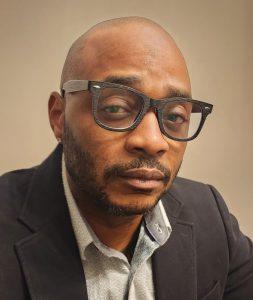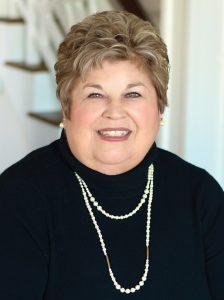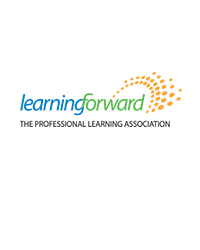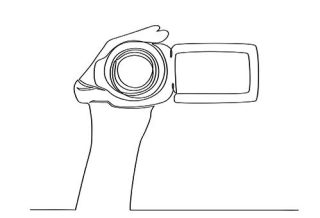CONFERENCE SPOTLIGHT
A keynote on the power of coaching: Voices from the field
By Learning Forward
Categories: Coaching, LeadershipOctober 2023
Coaching is one of the most powerful forms of professional learning, leading to improved teacher instruction and student achievement (Kraft, 2018). Too often, educators limit its potential by assuming that it can only be done by people with the word “coach” in their title. In fact, coaching is a set of skills that anyone who leads and supports others can use. Principals, assistant principals, supervisors, teacher leaders, and other education professionals can improve their teams’ work by developing strong coaching skills like listening, questioning, and paraphrasing.
You don’t need the job title to be a coach. Coaching is a set of skills for anyone who leads and supports: principals, assistant principals, supervisors, teacher leaders, and other education professionals. #coaching #educoach Share on XAt the 2023 Learning Forward Annual Conference, a keynote panel of coaching experts will debunk the myth that only coaches can coach and share insights on how to develop and deploy your coaching skills (see text box on p. 11). They will explain why coaching benefits everyone, the most important coaching skills to learn, and how to distinguish building capacity from giving advice.
One reason it’s important to intentionally build coaching skills among all leaders is to ensure that coaching is authentic and meaningful. When coaching is confused with giving advice, it does not build the coachee’s capacity to think and practice differently. Furthermore, when leaders dole out advice without encouraging the coachee’s own reflection, the result is a recycling of the same ideas over and over — especially when there is a power differential between the two people, which causes advice to be interpreted as a directive.
In contrast, when the conversation is a back-and-forth exchange characterized by genuine curiosity and authentic listening, it allows the parties to think creatively and share reflections that can lead to innovation. As a result, the best coaches hold their expertise lightly, rather than imposing it heavily upon others.
Conference panelists will explain what this looks and sounds like, drawing on examples from their own work and lives. Their discussion will make you rethink your assumptions about coaching and open up new avenues for educators at all levels to benefit from coaching.
We asked the expert panelists about the insights they plan to share during the conference. Here are highlights.
“Coaching is a skill that extends beyond a role. Coaching builds capacity in others, and it’s the way all educators should be relating.  We want everyone to know they can use coaching conversational skills to support others’ thinking and that everyone should be coached because there is so much value in it.” — Sharron Helmke, senior vice president, professional services content, Learning Forward
We want everyone to know they can use coaching conversational skills to support others’ thinking and that everyone should be coached because there is so much value in it.” — Sharron Helmke, senior vice president, professional services content, Learning Forward
“When we’re talking about coaching for teachers, we’re not talking about an extra thing, we are talking about the work that you do. We’re talking about being more thoughtful about that work. We’re not saying let’s add something. We’re saying let’s slow down and  look at what we’re already doing and refine that.” — James Thurman, Blueprint Literacy Coach for Baltimore City Public Schools, Maryland
look at what we’re already doing and refine that.” — James Thurman, Blueprint Literacy Coach for Baltimore City Public Schools, Maryland
“We coach the whole person [because] it’s not just about your work self, it’s about your whole self. Have a personal win in this ![]() coaching session, have accountability to move forward with a next action, because we know that will have ripple effects and create momentum.” — Jen Lara, professor of education, lead coach, and co-creator of Anne Arundel Community College’s Engagement Coach Training Program, Maryland
coaching session, have accountability to move forward with a next action, because we know that will have ripple effects and create momentum.” — Jen Lara, professor of education, lead coach, and co-creator of Anne Arundel Community College’s Engagement Coach Training Program, Maryland
“Great coaches don’t tell anyone what to do. We ask great questions.” — Jackie Owens Wilson, executive director of the National Policy Board for Educational Administration and co-author of Blended Coaching: Supporting the Development and Supervision of School Leaders
Board for Educational Administration and co-author of Blended Coaching: Supporting the Development and Supervision of School Leaders
Download pdf here.
References
Kraft, M.A., Blazar, D., & Hogan, D. (2018). The effect of teacher coaching on instruction and achievement: A meta-analysis of the causal evidence. Review of Educational Research, 88(4), 547-588.

Learning Forward is the only professional association devoted exclusively to those who work in educator professional development. We help our members plan, implement, and measure high-quality professional learning so they can achieve success with their systems, schools, and students.
Categories: Coaching, Leadership
Recent Issues
WHERE TECHNOLOGY CAN TAKE US
April 2024
Technology is both a topic and a tool for professional learning. This...
EVALUATING PROFESSIONAL LEARNING
February 2024
How do you know your professional learning is working? This issue digs...
TAKING THE NEXT STEP
December 2023
Professional learning can open up new roles and challenges and help...
REACHING ALL LEARNERS
October 2023
Both special education and general education teachers need support to help...










